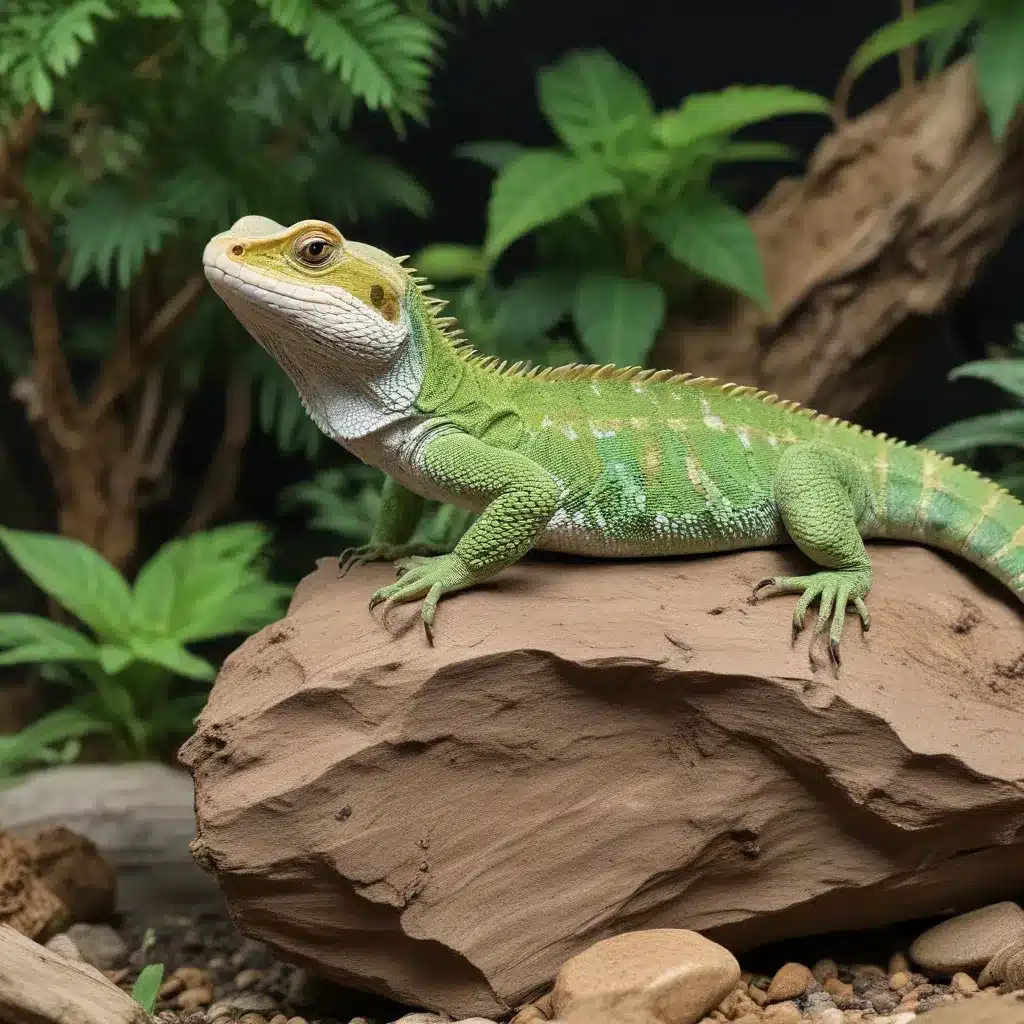
Providing Optimal Environments for Diverse Reptile Species
When it comes to keeping exotic reptiles, creating a suitable habitat is paramount. These incredible creatures thrive in environments that closely mimic their natural ecosystems, ensuring their physical and psychological well-being. From carefully curating the substrate and vegetation to maintaining appropriate temperature and humidity levels, every aspect of the enclosure plays a crucial role in the long-term health and happiness of your reptilian companions.
One of the foundational elements in constructing a captivating habitat is the choice of substrate. Opt for a high-quality, reptile-safe substrate that allows for burrowing and maintains the desired humidity levels. Avoid substrates that may contain harmful chemicals or additives, as these can pose serious risks to your pets. Integrating a layer of sphagnum moss or coconut fiber can help regulate moisture levels and provide a comfortable, natural-looking base. Incorporating various textured materials, such as rocks, driftwood, and branches, not only enhances the aesthetic appeal of the enclosure but also offers essential climbing and basking opportunities.
Maintaining Optimal Temperature and Humidity
Perhaps one of the most critical factors in reptile husbandry is the precise control of temperature and humidity. Different reptile species have unique requirements, so it’s essential to research the specific needs of the individuals in your care. For instance, many tropical species thrive in warm, humid environments, while desert-dwelling reptiles prefer drier, more arid conditions. Utilizing a combination of heat lamps, under-tank heaters, and misting systems can help you create and maintain the ideal microclimate within the enclosure.
Properly regulating the temperature gradient is crucial, as reptiles rely on their environment to regulate their body temperature. Providing a basking spot with a higher temperature and a cooler area allows your pets to thermoregulate naturally. Monitoring the temperatures at various points within the enclosure, and adjusting the equipment accordingly, is essential to ensuring the well-being of your reptiles.
In addition to temperature, maintaining appropriate humidity levels is also vital. Dehydration can be a significant health concern for many reptile species, so misting the enclosure regularly and incorporating moist substrates or water features can help create the ideal humid environment. Striking the right balance between temperature and humidity is a delicate dance, but one that is essential for the overall health and vitality of your reptile companions.
Breeding Exotic Reptiles: Techniques and Considerations
Responsible breeding of exotic reptiles requires a deep understanding of their natural history, reproductive behaviors, and specific care requirements. Whether you’re an experienced breeder or a novice enthusiast, the decision to engage in captive breeding should not be taken lightly. Proper planning, research, and adherence to ethical practices are crucial to ensuring the well-being of the breeding stock and the successful rearing of any offspring.
One of the primary considerations in exotic reptile breeding is the selection of breeding pairs. Carefully assess the genetic diversity, health, and temperament of potential mates to minimize the risk of congenital defects or behavioral issues in the offspring. Establishing an appropriate breeding schedule, based on the species-specific cues and environmental triggers, is also essential for successful reproduction.
During the breeding process, it’s crucial to monitor the female closely for signs of gravidity (egg-bearing) and provide her with a suitable nesting area. Ensuring the availability of proper incubation temperatures and humidity levels is paramount to the successful hatching of the eggs. Once the hatchlings emerge, a dedicated rearing protocol, including a nutritious diet and appropriate housing, is necessary to support their growth and development.
Navigating the Legal Landscape of Exotic Reptile Ownership
The ownership and sale of exotic reptiles are subject to a complex web of laws and regulations, which can vary significantly depending on your location. Before acquiring or breeding any reptile species, it’s essential to familiarize yourself with the applicable local, state, and federal laws to ensure compliance. This may include obtaining the necessary permits, adhering to specific housing and care requirements, and following proper protocols for the sale or transport of these animals.
Responsible reptile enthusiasts must also be aware of the potential risks and ethical considerations surrounding the exotic pet trade. Illegal wildlife trafficking and the exploitation of vulnerable species can have devastating consequences for both the animals and the ecosystems they inhabit. By sourcing your reptiles from reputable, ethical breeders and supporting conservation efforts, you can help mitigate these concerns and contribute to the responsible stewardship of these remarkable creatures.
Prioritizing Reptile Health and Well-Being
Maintaining the optimal health and well-being of your exotic reptiles is a multifaceted endeavor, requiring a comprehensive understanding of their unique physiology, nutritional needs, and common health concerns. Regular veterinary check-ups, preventive care, and a diligent monitoring of your pets’ behavior and physical condition are essential to ensuring their long-term prosperity.
Proper nutrition is a critical component of reptile care, as deficiencies in essential vitamins, minerals, and proteins can lead to a host of health issues. Carefully researching and providing a balanced, species-appropriate diet is crucial. Incorporating calcium and vitamin supplements, as well as offering a variety of fresh, nutritious foods, can help support your reptiles’ overall health and vitality.
Vigilance in monitoring for signs of illness or injury is also paramount. Rapid detection and prompt treatment of conditions such as respiratory infections, parasites, or shell deformities can make the difference between a positive outcome and a potentially devastating health crisis. Establishing a relationship with an experienced reptile veterinarian is highly recommended, as they can provide invaluable guidance and medical support tailored to the specific needs of your exotic pets.
By prioritizing the creation of captivating, species-appropriate habitats, adhering to responsible breeding practices, and maintaining the highest standards of reptile health and well-being, you can ensure the long-term success and enjoyment of your exotic reptile companions. Through a deep understanding of their unique needs and a commitment to their overall welfare, you can foster a thriving and rewarding relationship with these remarkable creatures.
Remember, the Exotic Reptiles for Sale website is an excellent resource for further information and support on all aspects of exotic reptile care, breeding, and ownership.

